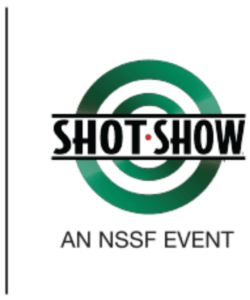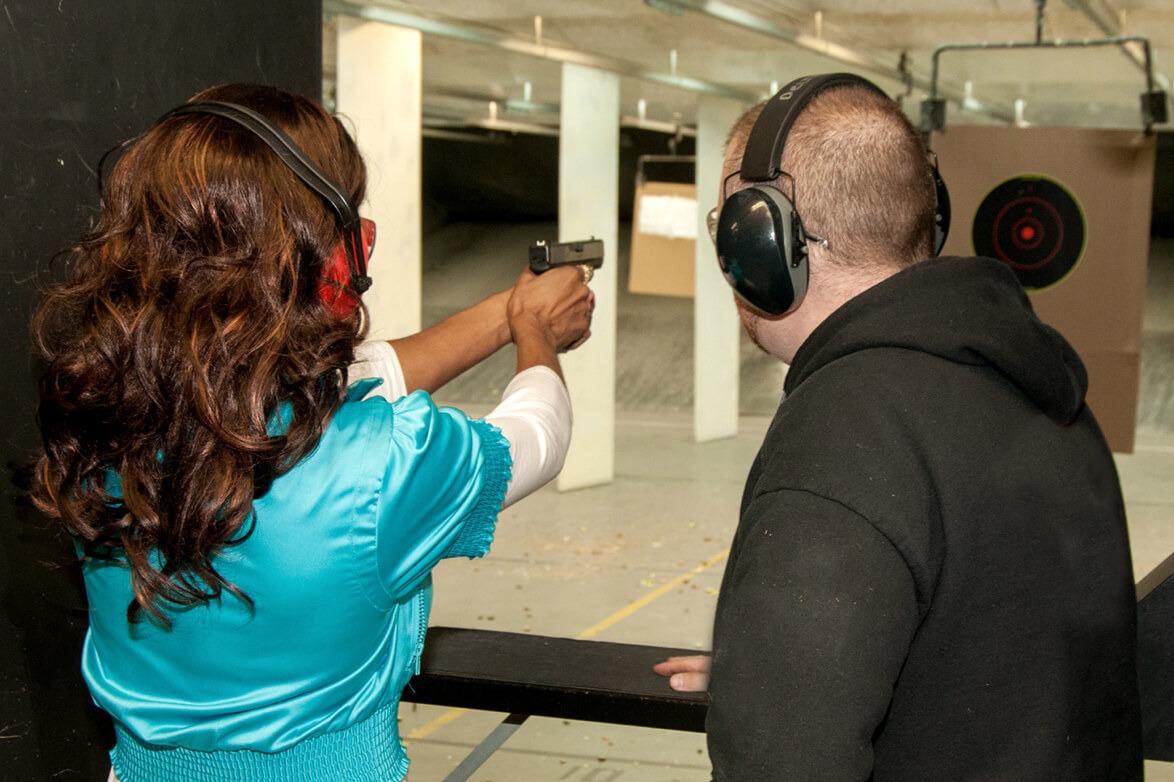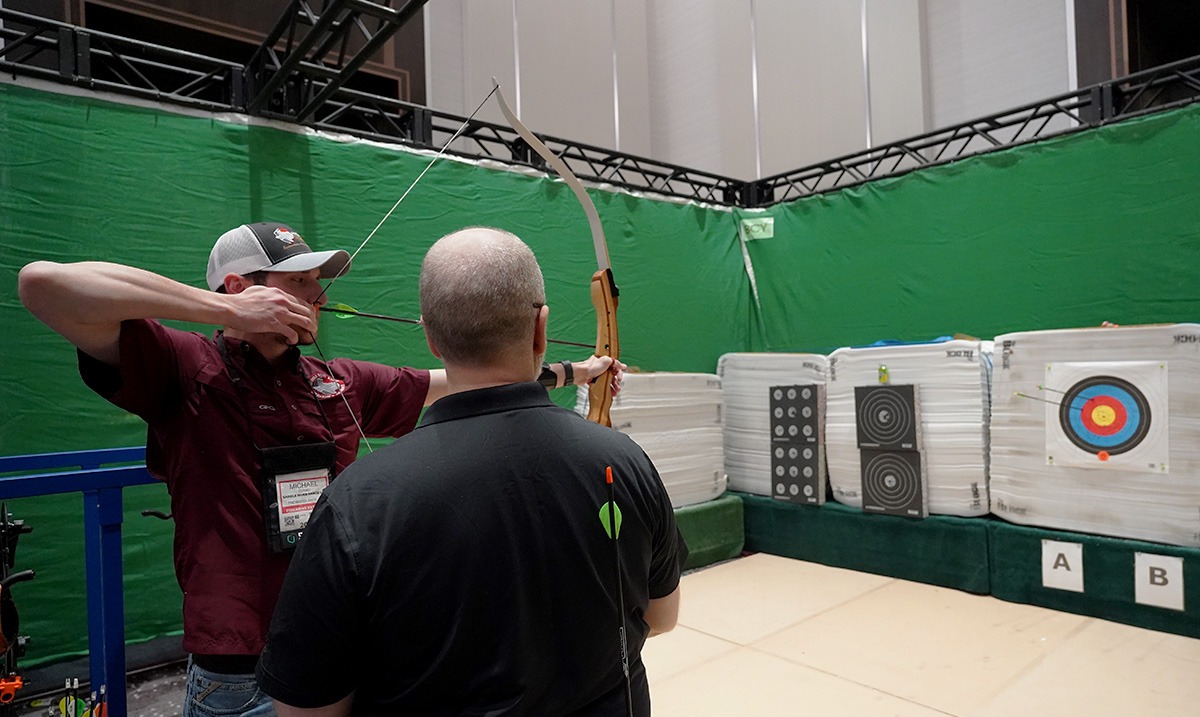 Back to News
Back to News
November 21, 2025
How to be Innovative while Compliant: Text Marketing in the Shooting Sports Industry
It’s Not Impossible to Text in the Firearm Space — It Just Has to Be Done Right
There’s a persistent myth in the shooting-sports community that texting is no longer possible for firearm businesses — that carriers have banned it outright and that every message mentioning a “gun,” “range” or “9mm” will automatically be blocked. That belief has kept countless ranges, retailers and manufacturers from using one of the most effective marketing channels available.
It’s simply not true.
Having guided over 400 firearm brands through 10-Digit Long Code (DLC) approval in the last three years, I’ve seen firsthand how education and transparency can open doors once thought closed. It’s not about tricking the system; it’s about working within it. When firearm businesses follow proper SHAFT (Sex, Hate, Alcohol, Firearms and Tobacco) registration and age-gating standards, carriers approve legitimate campaigns every single day.
And that’s critical — because text messaging is still the highest-performing marketing channel in any industry. With open rates consistently above 90 percent, most texts are read within minutes. Whether you’re promoting a weekend sale, a training class or a membership drive, SMS and MMS marketing drive immediate results that email and social media simply can’t match.
2025, however, has been one of the most turbulent years yet for compliance, with new legislation, carrier audits and platform policy changes shaking up the entire messaging landscape. Here’s what every shooting-sports business needs to know.
2025 Q1: The Firearm Freeze and How Compliance Evolved
The year began with confusion. Shortly after President Trump’s inauguration, several major carriers began quietly rejecting firearm-related content. Messages containing links to websites with “AR-15” anywhere in the copy were being blocked automatically.
It took 90 days of coordinated advocacy — including outreach to multiple state Attorneys General and conversations within the NSSF community — to reach an agreement. Carriers finally accepted a clear framework: firearm brands must include a 21+ age gate and a disclosure that “firearms not legal in all 50 states will not be marketed via SMS.”
That resolution, while bureaucratic, opened the door to legitimate firearm communications once again. It became the model for all future SHAFT-compliant registrations. Today, that same structure allows approved firearm businesses to send promotional messages legally and consistently — without fear of being blacklisted.
2025 Q2–Q3: Texas Senate Bill 140 Redefines Quiet Hours
Next came Texas. On September 1, 2025, Senate Bill 140 (SB 140) went into effect, reclassifying text messages as “telephone solicitations.” This changed everything for any business that texts Texas residents.
SB 140:
- Restricted quiet hours — no texts before 9 a.m. or after 9 p.m. Monday through Saturday and none before noon on Sundays.
- Required state registration with a $200 filing fee and a $10,000 security deposit.
- Added narrow exemptions for publicly traded companies, food sellers and long-standing brick-and-mortar businesses operating under the same name for at least two years.
While frustrating, the law forced the industry to build smarter safeguards. Responsible platforms introduced “Exclude Texas” options, time-zone awareness and automatic quiet-hour enforcement. Dealers who adapted early avoided penalties; those who ignored the new law risked fines and delivery shutdowns.
More information about TX SB 140, and its requirements, can be found here:
Attention Texas Businesses: SB 140 Quiet Hours and Registration Rules Are Now Active.
SB 140 underscored a bigger truth — compliance isn’t a one-time project. It’s a moving target that requires ongoing education, vigilance and the right technology partners.
Q3: Apple’s iOS Spam Filter — The Silent Deliverability Killer
September brought another major change: Apple’s iOS update that automatically filtered texts from numbers not saved in a user’s contacts into an “Unknown Senders” folder. For many retailers, this quietly crushed their deliverability overnight.
The fix is straightforward: get customers to text you first.
When a user opts in by texting a keyword like JOIN, RANGE or MEMBER, that conversation thread becomes “known” to their phone. Then, by automatically replying with a contact card (vCard) and clear opt-out instructions, you ensure future messages reach the main inbox instead of the spam folder.
This isn’t optional anymore — it’s essential. Without keyword opt-ins and contact-saving automations, even fully compliant firearm brands risk being invisible on iPhones.
Mid-Year Reversal: Klaviyo and the Return of SHAFT Content
In July, Klaviyo quietly updated its acceptable-use policy to permit SHAFT-category messaging, including firearms, provided senders follow carrier regulations and age-gate properly.
While some hailed this as progress, veterans of the industry know better than to celebrate too quickly. Publicly traded tech companies often change policies as fast as their investor sentiment. We saw the same story play out with Podium, Birdeye and others around 2020 — welcoming firearm clients one month, then banning them the next.
The Dark Side of SMS — Spoofing, Cloaked Links and Fake Opt-Ins
Not all providers play by the rules. Over the past year, a growing number of “gray-market” SMS platforms have targeted firearm businesses, promising quick approvals and unrestricted sending. Most rely on illegal or deceptive tactics that can cost a company millions.
I broke this down in detail in “SMS Spoofing, Cloaked Links and Fake Opt-Ins: How to Spot a Dirty Text Provider.”
Here’s a summary of the most common abuses:
- SMS Spoofing: Spoofing manipulates sender IDs or rotates numbers to hide who’s really sending the message. This violates carrier and CTIA guidelines and carries fines up to $2,000 per message — and blacklisting of your brand.
- Cloaked Links: Providers that hide SHAFT content behind bit.ly or other shorteners are gambling with your reputation. Carriers now trace redirect paths and block deceptive URLs on sight.
- Fake Opt-Ins: Any contact list without documented consent is a liability. Some vendors import scraped or purchased data and send without proof of opt-in — leaving the firearm business, not the platform, responsible for $500–$1,500 per message in TCPA fines.
- Deceptive Landing Pages: When a text sends customers to a “generic login” that hides a firearm or ammo sale inside, carriers treat it as fraud. Once flagged, all numbers tied to that domain are shut down.
- Number Rotation: If your provider tells you to “switch numbers monthly,” that’s a clear sign your traffic isn’t registered properly. Legitimate SHAFT traffic doesn’t require constant number changes.
Each of these shortcuts is a time bomb waiting to detonate on your business.
The Biggest Myth: “You Can’t Say Gun, Firearm or Range”
This myth needs to die once and for all. You can say “gun,” “firearm” and “range” in text messages — as long as your brand is registered correctly.
When a provider tells you otherwise, it usually means they failed to register you as a SHAFT company with The Campaign Registry (TCR). Carriers block unregistered traffic automatically. If they later discover that you’ve been sending firearm content under a fake category (like “retail general”), the fines are severe — $500–$2,000 per message, multiplied by every recipient.
Do the math: one 10,000-recipient blast could, in theory, equal $20 million in potential exposure.
Transparency isn’t optional — it’s the price of admission to the modern messaging ecosystem.
Education Through Partnership
NSSF has long led the charge in helping firearm businesses adapt to evolving regulations. Partnering with NSSF-member vendors and technology providers ensures you’re aligned with companies that share your mission of responsible communication.
Education remains the best defense against fines, shutdowns and misinformation. Ranges and retailers that invest in learning the rules don’t just survive, they build customer trust that lasts for years.
Looking Ahead: 2026 and Beyond
The next era of text marketing in the shooting-sports industry will focus on three themes: automation, accountability and access.
- Automation will simplify compliance — geo-filtering, age verification and quiet-hour protection built directly into dashboards.
- Accountability will expand as carriers share registration data and monitor repeat offenders across networks.
- Access will depend on continued education and advocacy. The more we demonstrate responsible use, the more doors we keep open.
Technology isn’t the threat — ignorance is. The businesses that learn, adapt and stay transparent will lead the next decade of firearm marketing.
Protecting the Right to Communicate
The right to keep and bear arms includes the right to communicate responsibly about them. Text marketing is more than a sales tool — it’s a lifeline connecting firearm businesses to their customers, training communities and membership bases.
2025 proved it’s possible to text legally, ethically and effectively in the firearm industry. The key is working with partners who understand compliance, respect regulation and fight for your ability to stay connected.
Will you be at the 2026 SHOT Show®?
Consistency beats complexity and speed beats silence. Your business could be using profitable automations proven to increase revenue, retention and repeat customers in the firearm industry.
Learn more from Ben Nelson at SHOT University™️ during his educational session The Top Automations Driving Revenue for Firearm Retailers, Ranges, eCommerce and Events.
Whether you run a range, retail store, eCommerce site or large-scale event, you’ll leave with ready-to-deploy campaigns that generate results immediately.

Enroll in this and other educational opportunities during the SHOT Show registration process, or add sessions anytime to your registration.
Seats will be limited. Enroll early to get your spot! Enrollment Fees Per Session: $40 NSSF Members | $75 Non-Members. Learn more about NSSF Membership here.
About the Author
Ben Nelson is the founder of Otter Technologies. Through OtterText and OtterSign, Ben has helped hundreds of ranges, retailers, eCommerce businesses and event operators generate millions in measurable revenue using compliant SMS and email campaigns.
Categories: BP Item, Featured, Industry News, Manufacturers, Ranges, Retailers, Top Stories, Uncategorized








